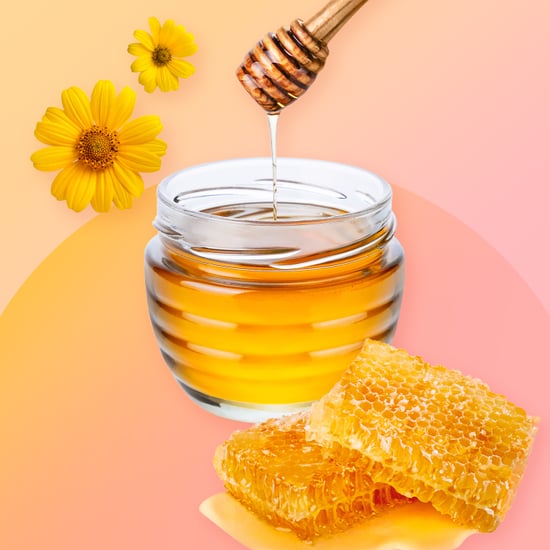How to Increase Milk Supply
Want to Boost Your Milk Production? Experts Share What Does — And Doesn't — Work

Taking a lactation supplement may sound like an easy way to increase milk supply while breastfeeding, but there are more effective strategies. If you're a breastfeeding mom, you may be curious to try the lactation cookies and teas that you've seen promoted on social media or in the supermakert aisles. They claim to help boost milk production and maintain milk supply — which can be a struggle for some moms. In fact, while 50 percent of mothers think they don't have adequate milk supply, it's actually pretty rare — most women make one-third more breastmilk than their babies usually drink. So be sure to consult your doctor first if you're worried about your production levels. But if you've ever been curious to try a lactation supplement, read on for the low-down.
Do lactation cookies or teas work?
"At this time, there is not sufficient evidence to support the use of herbs and supplements promoted for increasing milk supply," Melissa Majumdar, MS, RD, CSWOM, LDN, registered dietitian and spokesperson for the Academy of Nutrition and Dietetics, tells POPSUGAR.
The studies done on these supplements are small and generally do no not have a randomized controlled group, Majumdar explains. "Most studies also combine ingredients in the supplements, so it's hard to determine which, if any, active ingredients are effective," she says. "Moms must also keep in mind that supplements are not regulated in the same way by the Food and Drug Administration, so you should be cautious when taking one."
There are many ingredients in lactation supplements and cookies, the most common being fenugreek, brewer's yeast, fennel, goat's rue (dried and processed), and blessed thistle, says Kristi King, MPH, RDN, LD, CNSC, spokesperson for the Academy of Nutrition and Dietetics. "Lactation cookies usually contain some of the above, but also contain flaxseed meal, wheat germ, and oats, as well as the yummy stuff like butter and sugar." And these ingredients may help with milk production. "These foods or herbs are galactagogues, nutrients that have been found to increase milk production. However, the exact method that facilitates reaction isn't fully understood," says King. "In simple terms, it's thought that galactagogues may stimulate endogenous hormones which increases milk production."
Lactation cookies contain nutritious ingredients that, regardless of aiding in milk production, are still good for nursing mommas. However, when it comes to taking supplements, exercise caution and consult your doctor first. "Supplements are not regulated the same way by the Federal Drug Administration, which means what is on the label isn't necessarily what is in the product and vice versa," says King.
How can I increase my milk supply?
Before buying one of these breastfeeding supplements, try on of these tips:
Do more frequent feeding or pumping sessions.
"As the baby nurses, s/he stimulates the mother's body to create milk. There is a protein called a feedback inhibitor of lactation (FIL) in the breastmilk that tells the mammary glands when to stop creating milk," says Adis Roman, RN, IBCLC, CCE, lactation consultant at New York-Presbyterian Allen Hospital. "Milk stays in the breast and fills the mammary glands until they cannot hold any more. The FIL protein then tells the breast to stop producing milk because it's not being used. When the baby breastfeeds and the milk is used, the level of FIL decreases, therefore stimulating the mammary glands to make more milk. That is why the more you breastfeed or pump, the more milk you produce."
Increase your fluid intake.
"The human body is made up of mostly water. You need water for all of your bodily functions to work properly," says Roman. "Breastmilk is also mostly water, therefore, if the mother is dehydrated, her body takes care of her first and she produces less breastmilk." Try to get around 120 ounces of water each day to make sure you're hydrated enough to produce your full capacity.
Make sure you're getting sufficient calorie intake.
"Breastfeeding requires additional energy, around 500 calories per day, and moms need to eat throughout the day to make sufficient milk. If calories dip under 1,800 calories, nutritional needs will not be met and milk supply will decrease. Try eating a snack containing protein and carbohydrates while feeding baby, and keep easy-to-eat meals handy," says Majumdar. Here are some of her favourite snack ideas:
- Greek yoghurt + fruit
- Oatmeal made with milk + fruit + egg
- Cheesestick + whole grain crackers
- Half of a peanut butter + banana sandwich
- Cottage cheese + handful of popcorn
- Apple + peanut butter
- Egg + avocado + toast
- Veggies + hummus + whole grain crackers
But if you're still worried about breastfeeding or your milk supply, or you've tried the techniques above and didn't see results, the next step is to consult your doctor or a lactation consultant for advice.






